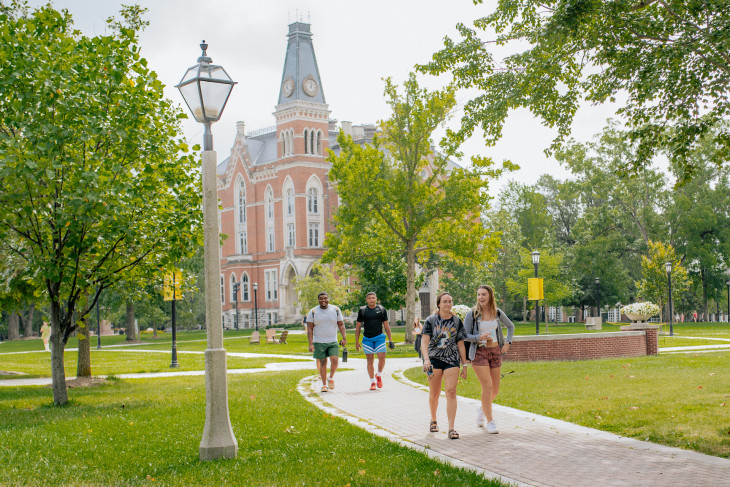On Aug. 15, students received an email from Vice President of Finance and Administration Andrea Young, announcing that on-campus jobs will now only be open to students with work-study as part of their financial aid packages. This comes with certain exceptions for skill-specific positions and returning students. In the email, it was stated that this was a “capacity-building action” in alignment with the Bold and Gold 2027 Strategic Plan. So what is this plan and what long and short-term changes will it bring?
As described on the DePauw website, the 2027 Strategic Plan aims to continue the outstanding histories, knowledge, and values of the DePauw community as a liberal arts and sciences educational institution, while also exploring other directions. This goal can be seen in the establishment of the three-school model: the College of Liberal Arts and Sciences, the School of Business and Leadership, and the Creative School. Young expressed that the Plan is oriented towards a systemic transformation rather than short-term austerity measures.
In order to follow this direction, however, changes were implemented for operation budgets of already existing departments to prioritize the endowment for capacity-building actions.
“I understand that people are frustrated,” Young shared. “I think about what changes would happen in our institutional spending patterns if we all treated every dollar as though it were our own money—would we make sure we were getting the best deal? Would we prioritize spending differently? Students and donors entrust us with their precious dollars, through tuition, room, board and fees in the first case and through donation in the second. We need to make sure we are very careful about how we spend those dollars.”

In dealing with these struggles, she also highly encourages the collaboration between departments, contract negotiations, and in-bulk purchases to utilize the best out of the current funding. She said, “President White and her cabinet are committed to working with faculty, staff, and students as we navigate changes. I have and will continue to host small group financial sessions for faculty and staff to help clarify our financial picture and to answer questions about budget changes. We are about to begin a new ERP [Enterprise Resource Planning] implementation in October that will give the institution superior tools for managing budgets and understanding our finances.”
According to Young, the higher education sector is encountering real challenges politically, socially, and economically. She points to the Cardinal Stritch University (WI), Cazenovia College (NY), and Finlandia University (MI) as some examples of private institutions’ closure due to not being able to meet their financial obligations. This situation is likely to continue as COVID relief funds have been used up. Even though Young is confident in DePauw’s capability to maintain a sustainable financial status from active endowment, committed donors, and expanding student body, budgeting obstacles still happen due to inflation and insufficient growth in revenues.
“There are institutions like us or schools to whom we aspire rethinking how they are spending their resources. Bates College (ME) cut programmatic budgets by 5% this year to account for increasing costs elsewhere due to inflation. Several years ago, St. Olaf College in (MN), a peer institution of DePauw, engaged in the Strategic Resource Allocation Project to control rising costs,” she said, highlighting the similar direction that DePauw’s peer institutions are taking.
Young believes that with active campus-wide collaborations, on-time support, and administrative transparency, the community at DePauw will benefit greatly from the 2027 Strategic Plan and capacity-building actions with “more centralization within the organization, better institutional controls on the use of resources, increased alignment of resources with strategic priorities, and the need for better tools to manage our resources.”



